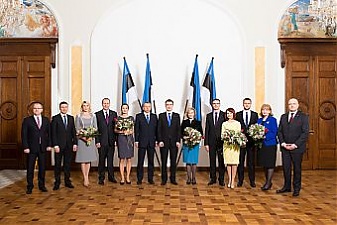Budget, Estonia, Financial Services, Legislation, Pensioners, Taxation
International Internet Magazine. Baltic States news & analytics
Thursday, 18.12.2025, 11:12
Estonian government agrees on fiscal policy priorities for next 4 years
 Print version
Print version |
|---|
Pursuant to the budget law, the budgetary position has to be in balance. The Government aims to reach a structural surplus of 0.2% of the estimated GDP.
The state budget strategy for the next four years considers the activities of the new coalition agreement, which in general have a positive impact on the budgetary position together with additional measures. If the Ministry of Finance estimated that the Government budget will be in structural balance by 2015 under the valid laws, then as a result of the agreements in the Government, the budget will be in surplus by next year.
The factors which have improved the budgetary position, inter alia, include a further rise in the excise duty on alcohol, changes related to value added tax incentive of a company's passenger cars used for private rides, the introduction of the Annex to the VAT declaration, increase in excise duty on tobacco and natural gas and the abolition of preferential duty on fuel with special marking (except for in agriculture and fishing boats). The part of the parent pension not yet in force will be payable from 2018, when the additional payments of the second pension pillar will be terminated.
As a result of these choices, the Government is able to increase the rate of universal and need-based child benefits, lower the unemployment insurance premium to 2.4% (of which 1.6% constitutes as the employee's partial payment and 0.8% as the employer's partial payment), keep the average pension exempted from income tax, provide free school meals also in the upper secondary school and increase basic exemption by ten euros each year.
Nominal budgetary position of the public sector will still run a deficit in the coming years due to temporary additional crisis payments of the second pillar and the use of the previously received revenue quota.
The state will invest 42 million euros into new streetcars in Tallinn and streetlights in the cities in Estonia; secondly, the state will make additional payments into the second pension pillar in the amount of 64 million euros.








 «The Baltic Course» Is Sold and Stays in Business!
«The Baltic Course» Is Sold and Stays in Business!

